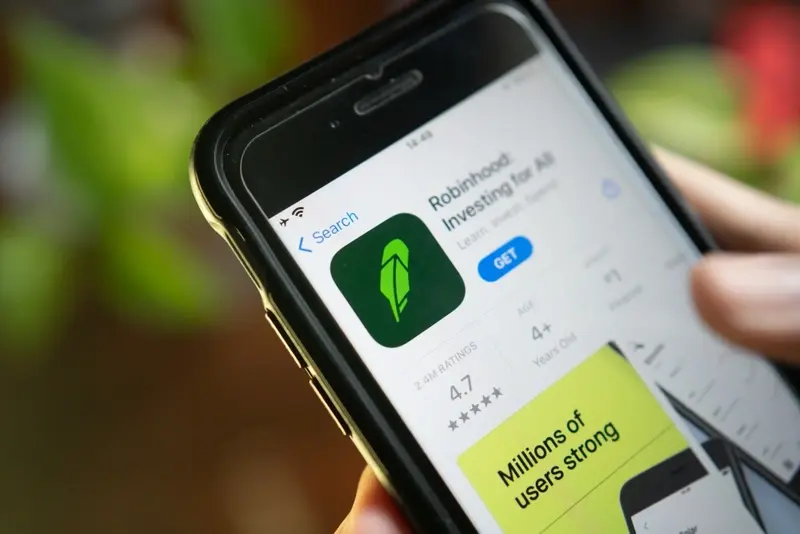
One of this year’s most hotly anticipated new US market listings fell flat after share trading platform Robinhood slumped 8% on its Nasdaq debut.
The popular app has drawn millions of young Americans to trade stocks for the first time and led to the so-called ‘meme’ stock frenzy earlier this year, closed more than 8% lower at $34.82 on its first day of trading as many retail investors snubbed its IPO, or initial public offering.
This was a shock wake-up call for Robinhood and other high-growth companies in much the same way that Deliveroo’s (ROO) flop float was here in the UK in March.
Having already lowered its valuation expectations by pricing its IPO at the low end of its range at $38 for a $32 billion valuation, Robinhood shares fell as much as 12% to an intraday low of $33.35 before partly recovering to close at $34.82, implying a day one closing market cap of $29.3 billion.
Set-up in 2013 by Stanford University roommates Vlad Tenev and Baiju Bhatt, Robinhood has helped to transform the way shares and cryptocurrencies are traded, with no dealing charges and easy-to-use, funky interface designed specifically for Millennials.
But retail investors were simply not prepared to pay the premium being asked, and as one market commentator said, ‘the reality is, $38 isn’t that cheap.’
LONG WAY TO GO
Robinhood’s last set of numbers, for the first three months of this year, showed the company posting a loss of $1.4 billion on $500 million revenues. The company says it expects to see fast growth in revenues this year, and there is decent evidence that this will be the case.
Robinhood’s monthly active users have more than doubled in the past 12 months, rising to 17.7 million during Q1 of this year, and up to 22.5 million towards the end of Q2. Revenues have risen from $277.5 million back in 2019 to just below $1 billion in 2020.
It also does a lot of business in crypto which has seen almost 18 million people use the Robinhood app, and the company has $81 billion in assets under management.
But the company has had to significantly bolster its balance sheet in order to ensure the business met deposit thresholds required by the various clearing houses that handle the trading orders on its platform. In February Robinhood took on $3.4 billion of new debt raised in February, which it used.





